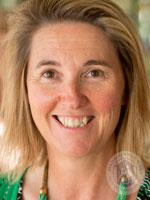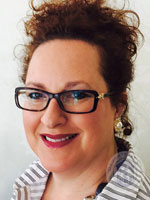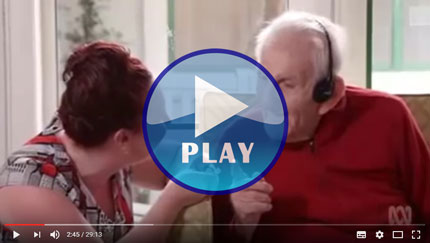On the ABC program, Catalyst there was a segment on ‘Music on the Brain’. It was a richly informative 30 minutes and is definitely worth watching by every Australian – young and old.
If you missed Catalyst on the television, please, please, please, do yourself a huge favour and watch it here. You will not regret this wise use of 30 minutes.
What is the benefit of every Australian watching this video?
1. You will appreciate the amazing abilities of our brain and understand the effects of music on the brain;
2. People living with dementia are not “gone”, “lost”, “a shell”, “not there”, “doesn’t know me” and other hollow descriptions. Instead we start realising how human and present the person living with dementia is, right up to the end of their life. We begin to understand that it is our responsibility to use our undamaged brains and our human-creativity to try harder to relate to our loved one with dementia. We understand how to communicate in an effective way that achieves meaningful connections and that honours their humanity.
I love the expression that music is a “side door into the brain”
Music that the elder knows and enjoys allows connection, and access to memories bypassing the damaged part of their brain (typically the hippocampus where short term memory or ‘working memory’ is transformed into medium and longer term memory). Music is a side door into those long held memories because music uses so many different parts of the brain, including parts of the brain that are not damaged by dementia, and so it is never forgotten. Their favourite music has often been played and replayed, therefore it is etched into or stored in the brain.
Daughterly Care has specialised in providing dementia care for 21 years and our 24hr Nurses and Hourly Caregivers and Live in Carers have been using music to connect with our elderly clients and their memories, as well as their emotions. Music memory has even enabled easier movement for older people with Parkinson’s therefore, reducing pain.
Catalyst reported on a number of different research projects investigating how the brain works and what effect music has on the brain of someone living with dementia, Parkinson’s disease or acquired brain injury – and the evidence based research is astounding.
Catalyst shows how music can positively affect human bonding, how it releases the feel good hormone oxytocin and how important it was in the evolution of human beings.

Registered Nurse, Verlie Hall – Daughterly Care’s Managing Director has provided dementia care for elders for 25 years and says “it’s great to see the science behind the power of music on the brain being brought to the attention of the public by shows like Catalyst. This enables family members to understand the power of music and use it more with their parent or grandparent. Nurses and professional Caregivers have used the power of music when caring for people diagnosed with dementia for decades”.
Ms Hall added “at Daughterly Care we are very fortunate to care for and enable people in their own homes where most elders prefer to live. Of course, they are able to experience the great benefit of remaining in their home that has visual cues of their life and loves surrounding them. These monumental items can be their family photos, their favourite music, their travel photograph albums, their family holidays; not to mention their interests and passions. So our Hourly Caregivers and Live in Carers can and do easily use their personal items, their personal history and their personal music to connect with our elderly clients”.
By contrast, Ms Hall believes “the great tragedy for people with dementia when placing them into a nursing home is that they are taken away from their familiar environment. They are taken away from their favourite music and their life history. Visual cues of what makes that person “who they are” rarely move with them into the nursing home. So in a nursing home it is more difficult to find out what their personalised music taste is and obtain copies of the music to load onto their own iPod then ensure it is used regularly. It is wonderful to see that starting to happen in a small number of nursing homes and there is no doubt society will look back, and say how did we ever not provide that level of care before?”
Ms Hall says “Daughterly Care is very proud to be the first community in-home aged care provider in Sydney to be accredited with the Music and Memory Program by the Arts and Health Institute. The Music & Memory Program is based on extensive neuroscience research. The results are commonly nothing short of miraculous. We see the personalised music on a client’s own iPod being beneficial for our private care clients who now live in a nursing home, as it is for our in home care clients living at home.
Daughterly Care’s life-changing benefits of using personalised music to connect to elders with dementia
- A proven way to give joy to an elderly living with advanced dementia
- Offers a fulfilling activity for a person who has reduced mobility or is bed-bound
- Reduces agitation and sun-downing
- Enhances engagement and socialisation, which results in an increased quality of life for the person, family and friends.
- Is a valuable tool to help reduce the need for anti-anxiety medications
What surprises (even experienced) Nurses and Assistants in Nursing in the nursing home environment is that after the elder with dementia has listened to their music they often continue to talk about their memories and their feelings. That is a great relief for most and they commonly say things like “I feel love, I feel love”. Or as Jonica Newby said on Catalyst, “Well that’s a happy day”.
UPDATE: Further confirmation of the effects of music as therapy is found in this ABC RN article, which reports on research at the Queensland Brain Institute and Macquarie University into the effects of music & memory, and the positive emotional effects of music and rhythm. Music therapists also discuss various techniques that show how music can delay the onset of dementia and how it works in neuro-rehabilitation treatments.
https://daughterlycare.com.au/amazing-power-music
If you would like your loved one to become a client of Daughterly Care and join our Joyful Singers group call us on (02) 9970 7333.

Warmly,
Kate
Kylie Lambert B.Ec F Fin
(known to her friends for 25 years as Kate)
Daughterly Care CEO, Co-Founder/Owner
You can share your experience by leaving a comment at the bottom of this page.
Don’t worry your email address is never published plus, you don’t have to complete the website address field!




How wonderful to see how music can awaken a person living with dementia. They hear sound and music that triggers the memory to “find” the person and connect in such a way that it brings them into the present – fantastic! Such a joy to watch.
Beautifully said Irena. It’s wonderful to see that something as simple as music can be so effective with no bad side effects. Thanks so much for sharing.
What a wonderful insight, connecting memory and emotions where all of the brain is activated.
I was floored by the people affected by Parkinsons. Just astonishing and has made me think I have a spare iPod I’m going to fill it up with some Classical music and Jazz, and have it in the first aid kit with the speakers. Brilliant thanks,
You’re welcome Wendy! What a great idea! We are collecting a range of music styles on CDs so we can expand our collection for our clients. Watch this space…
Actually my client told me about it.
I watched it on my ipad as I missed it. Incredible, absolutely incredible.
Fiona
Wonderful to hear your client recommended it – confirmation that they do feel the power of music, as we all do
Thanks for sharing Fiona, yes the show was absolutely incredible. It should be mandatory viewing for anyone caring for a person with dementia. I believe we will look back with horror at how people with dementia were ‘cared’ for in typical” nursing homes. The great advantage of caring for people with dementia in their own homes is that we have their loved music there and we play music for our clients all the time. It’s not “elevator” music piped through a nursing home for all…it’s their music they have loved. The key is THEIR music that they chose and love.
Watched Catalyst on TV and was very impressed with the dancing, regarding
people with Parkinson’s also.
Yes the dancing was just amazing. It’s so great that what our Caregivers see when implementing this program has now been shared on such a public platform as the Catalyst program!
Hi Jackie, I was taught one of the ways to get someone who has the Parkinson’s freeze to stat walking again is to sing a song like “onward Christian soldiers” and that music gets their brain going again. So music as an alternative to getting them to step over a rolled up newspaper or the like. Thanks for sharing. Kate
Oh, Jackie, wasn’t that amazing…that something as easy to use as their favourite music can give Elders living with Parkinson’s back so much physical ability.
Saw it and it was fabulous really worth watching xx
We agree! Please share with other people you think it will help.
Thanks definitely worth a viewing. Ann
That’s great Ann! And we have viewed it again and again and each time it raises a smile 🙂
Working for Daughterly Care has given me the opportunity to use music with my clients.
Seeing the transformation of an elder with Brain damage is so wonderful. Recently I took a client with dementia for a walk. His balance was s such a problem I had to hold his arm as he would have fallen over on the footpath. When we arrived home I put On a CD Nat King Cole jazz quartet. I noticed a change in the client. First he started to tap his hand on the bench in the kitchen – it did not take long and he was dancing around the kitchen bench and drumming his hands very loudly on the bench . His balance and movement were perfect- he did not need to hold the bench. His whole being was consumed by the music and it also gave joy to his wife who was seeing the husband she had not had in a her life for a very long time . It made my heart sing. Music speaks to the soul .
Thank you for sharing your story Kim. It touches our hearts and we’re sure many others are encouraged by it too. We love that our Caregivers can help our clients in this way.
Deep thinking – adds a new diimesnon to it all.
Kim, you are such a blessing to this client, who I have met. Jazz music has been a life-long passion of his, yet his family told me he was “over music” because when they asked him if he wanted to listen to music he said “no”. He often answers “no” to questions. We matched you with this client because we wanted you to explore music with him. Your musical visits give him great joy because you connect him back to one of the great passions he has enjoyed his whole life..and that is exceptional care. I love the way when clients dance to music you get them to lift their legs higher so they are using muscles they don’t normally use, so you are strengthening their balance without them even noticing. You’re so right, music speaks to the soul.
You’ve got to be kidding me-it’s so trtlpsarenany clear now!
I do notice clients get more agitated with the TV on in residential facilities especially with the ads and things they can’t understand at all.
Iv noticed some dementia units have calm rooms painted soft blus and have very peaceful music on so they can become calmer when all else fails.
We as careers need to be mindful of the background noise created when we leave commercial Tv or radio on for ourselves that it may be impacting significantly on the client without us even realising it!
More insightful than alive inside!
Thanks for this Wendy – keep the tips coming everyone! It’s fantastic to share them.
Yes, TV has to be selectively used. If you have something like the Sound of Music on Elders really enjoy watching it and will sing along. But TV is often used very inappropriately eg staff and residents continually walking in front the TV, and the channel being changed to suit staff rather than the residents.
Interesting concept .i was with a client at the hairdresser and another lady was talking about having seen the tv show and commented how fabulous it was.
can it work with italian sayings .although the client has gone to her own sence of language only she understands
Hi there Margaret, great to hear that “Music on the Brain” has got people in the community talking – it’s educating. Has the family provided any Italian music for your client? Could you ring the local library and ask if they have any Italian music? Definitely worth trying. We had a client with “severe behaviours that challenge” and we sent in one of our best dementia carers and it was surprising the connection she achieved with the client through facial expression, smiles, her tone of voice even though she was speaking English and dance and laughter. The daughter was very happy with the care. Thanks for sharing. Kate
Watching the Catalyst program is incredibly moving, watching the instant effect the music chosen for each person made.
I know how different music immediately effects me, stirring my soul to tears, joy, happiness even to fear. You instinctively start to move.
In the nursing home environment when supervising residents in the dining room they all smiled when I danced around the room amongst them. Watching 40 of them in the large lounge room when the band comes in weekly to play bright upbeat music it’s a beautiful thing to watch them tapping waving their arms around with big smiles on their faces. Some up dancing with nurses.
But sadly it’s only an hour a week they are stirred like this.
I play a lot of different music for my client at home who is able to choose the sort of music she’s like to listen to, which has the ability to calm her restlessness for varying amount of times, which is wonderful to see her relaxed and peaceful and not so anxious. Also loves being held and moving to the music.
Definitely a powerful positive tool for her and myself.
Thank you for sharing, Eleanor. Music really does have evidence-based, tangible benefits and as you have highlighted, if just 1 hour a week shows this, in the Nursing Home environment, it’s not hard to imagine what wonderful results can be achieved by more one-on-one time in the client’s own home, with music that has been personally selected.
I only recently joined Daughterly Care. I watched the ABC catalyst show. Amazing what music can do the brain. I have seen something similar on the German TV. People with a dementia are invited to share a weekly live music concert. At the beginning nobody really joins the music but after a couple of weeks the audience gets used to the music and more and more people join the music. Old songs are played and the people remember the words of the songs by heart. Amazing. I guess people who work for a long time with Elders knew it all along what impact music has. Good that it is now scientifically proven.
Thanks Antje – so lovely to have you join the conversation. We will have more information coming soon, around the topic of music and its uses to provide the most benefit and best outcomes for our clients.